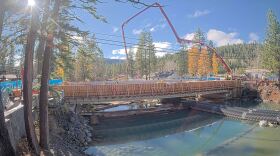The U.S. Supreme Court’s latest ruling on birthright citizenship is drawing sharp criticism from a Nevada lawmaker.
In a 6–3 decision on June 27, justices ruled that lower courts can’t block federal policies nationwide. This means President Donald Trump’s plan to end birthright citizenship could move forward in some states – even while legal challenges continue in others.
Nevada was one of 17 states that filed a joint lawsuit on Jan. 28 against the administration.
Democratic assemblymember Cecelia Gonzalez, who is also a member of the Nevada Latino Caucus, said the ruling creates a dangerous precedent.
“ Today's mixed ruling leaves the future of birthright citizenship to lower courts, but by refusing to fully block the federal government's attempt to restrict it, the Supreme Court has now opened the door to a fractured system,” Gonzalez said.
The ruling is part of a broader political strategy to divide the country, she said, and it will only undermine the economic growth immigrants provide.
“ Denying legal status to future generations is going to continue to drive up costs and strain our already burdened public systems,” Gonzalez said.
The ruling will go into effect after 30 days. She said this gives opponents time to fight the policy in court, but warns that families in Nevada remain at risk.
“ I think that there are legislators like myself who will do anything we can to protect our rights,” Gonzalez said. “And so if there is anything that can be done at the state level, we will absolutely move to doing as such.”







